(MENAFN- Trend News Agency)
Agriculture and agrifood systems offer the best path to create a
sustainable world with inclusive prosperity, the FAO
Director-General QU Dongyu stressed today in a keynote address to
the Members of the Nizami Ganjavi International Center.
“Our agrifood systems need a paradigm shift, and must be
transformed,” stressed Qu, who was invited to outline his vision
for how to end hunger and poverty and create a better world,
particularly through the Four Betters (better production, better
nutrition, a better environment and a better life) embedded in
FAO's Strategic Framework 2021-2030.
“Freedom from hunger is a basic right,” Qu said.“In the 21st
century, we have all the necessary conditions, knowledge and
capacities to eradicate it.”
The Nizami Ganjavi International Center was established in 2012,
in Azerbaijan, with the mission of promoting learning, tolerance,
dialogue and understanding in the world.
Among the participants in the Board of Trustees of the Nizami
Ganjavi International Center were numerous former heads of state
and government from around the world, such as Vaira Vike-Freiberga,
former President of Latvia and Co-Chair of the Center, and Kolinda
Grabar-Kitarovic, former President of Croatia, –as well as former
top officials of international organizations and UN bodies, such as
Maria Fernanda Espinosa, former President of the UN General
Assembly and formerly a minister for her home country Ecuador.
“We live in challenging times,” he noted, pointing to the 811
million people hungry today and the additional 2 billion people who
will need to eat by 2050, as well as the adverse impacts of the
COVID-19 pandemic and the rising food and fuel prices, both coming
while many household and government budgets are squeezed. Rising
fertilizer prices, as well as prices for seeds and animal feed, are
also a concern, as lower use of such agricultural inputs point to
“the real prospect of lower food productivity resulting in even
higher food prices” and possibly further rises in the number of
undernourished people in the future, he added.
Problems can drive progress
Qu recalled the lean times of his childhood in China and said
science-driven breakthroughs such as Yuan Longpin's innovations in
the 1970s with hybrid rice - which now account for more than half
the country's cultivation - made him realize that“problems could
also be the drivers of progress.”
Agricultural technology holds the power to produce enough food
for all people, he said. Not only are agrifood systems key to
achieving the 2030 Sustainable Development Agenda, but“agriculture
is the most inclusive tool to end poverty and hunger,” the
Director-General said.
FAO's Strategic Framework for the next decade aims to support
FAO Members to transform agrifood systems, which requires holistic
approaches to minimize trade-offs using data, science,
technologies, innovation and enabling policies.
The Four Betters are the core of FAO's road map:
Better production means increasing farm incomes, yields,
productivity and optimizing resource utilization, as well as
reducing food loss.
Better nutrition means steering agricultural productivity to
produce safe and high-quality food through sustainable methods and
fostering balanced consumption as well as zero food waste.
Better environment means developing precision and circular
agriculture to optimize the use of agrochemicals, fostering green
and climate-resilient farming and promoting the sustainable
management of forest and marine resources to protect
biodiversity.
Fourthly, a better life for all means assuring inclusive rural
transformation, especially for vulnerable peoples, by scaling up
investment and facilitating access for the rural poor to assets,
services, finance, decent jobs and business opportunities and
improved livelihoods.
All of the above, the Director-General emphasized, requires
removing constraints faced by women both in participating in and
benefiting from the transformation process, and empowering youth,
so that no one is left behind.
President Vaira Vike-Freiberga, Kateryna Yushchenko, President
Kolinda Grabar-Kitarovic, Ambassador Susan Elliott and Ambassador
Robert Cekuta discussed impact of the armed conflicts, especially
Ukraine war on food security.“Ukraine is known as the breadbasket
of Europe” and is among three exporters of grain in the world. If
food prices will continue rising as it is, then it will create
potential hunger. Maria Fernanda Espinosa, Zlatko Lagumdzija and
Ismail Serageldin, extended invitation to the Director-General to
join upcoming IX Global Baku Forum, as well as to look for a
partnership of Nizami Ganjavi International Center and Food and
Agricultural Organization.
The Director-General also answered questions from the Trustees
on how to promote the role of science across the Organization's
work.“I hope we all agree on the potential of Science and
Innovation to help us move forward to a better world for all,” said
FAO Chief Scientist Ismahane Elouafi, who moderated the
discussion.
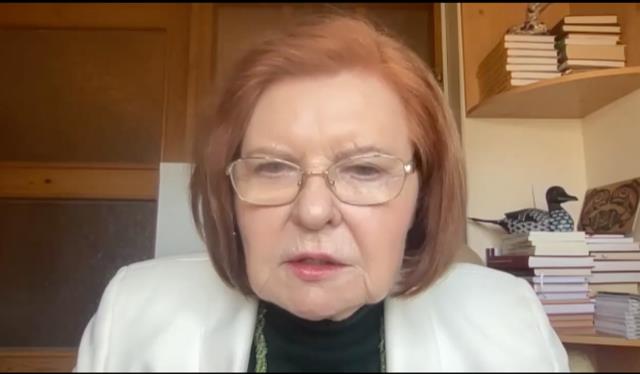
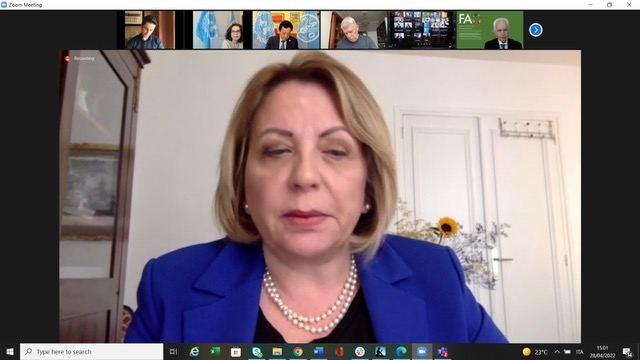
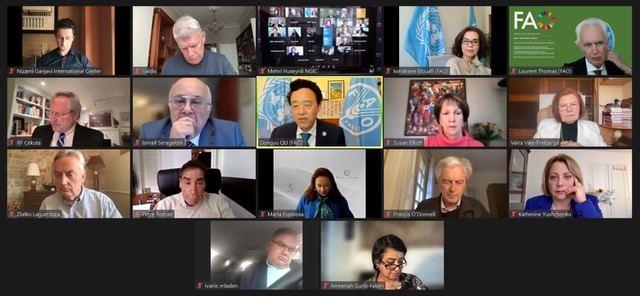
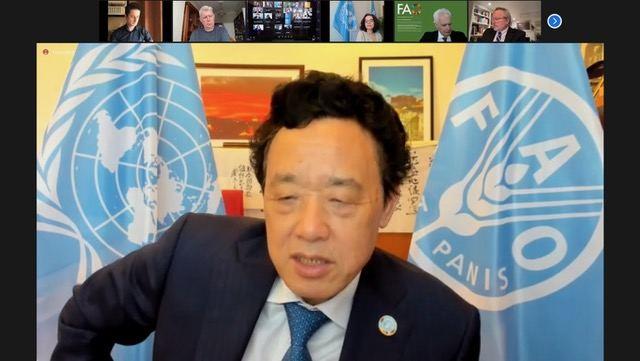
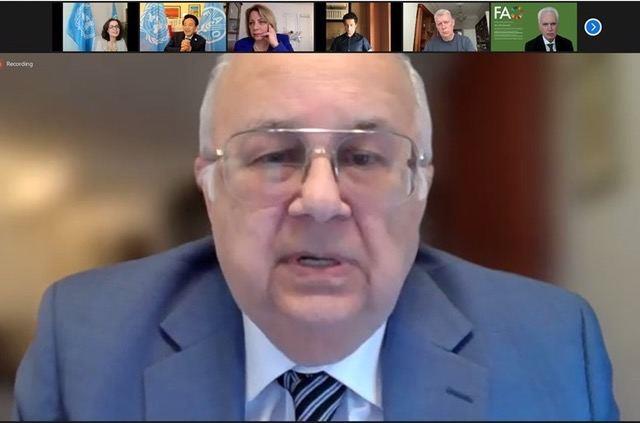
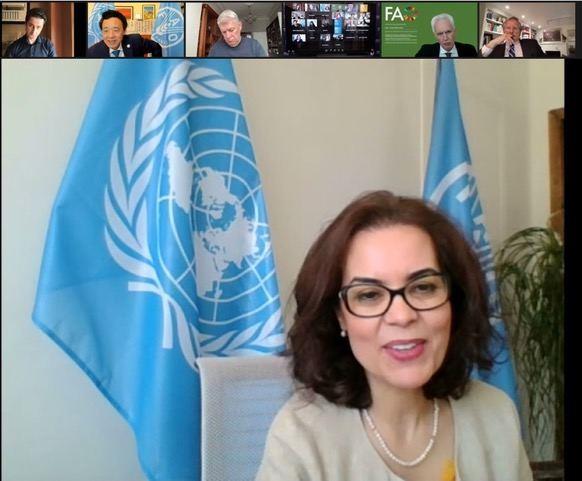
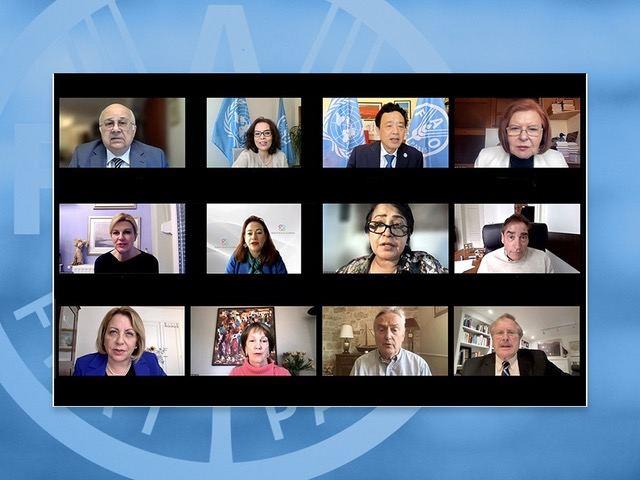
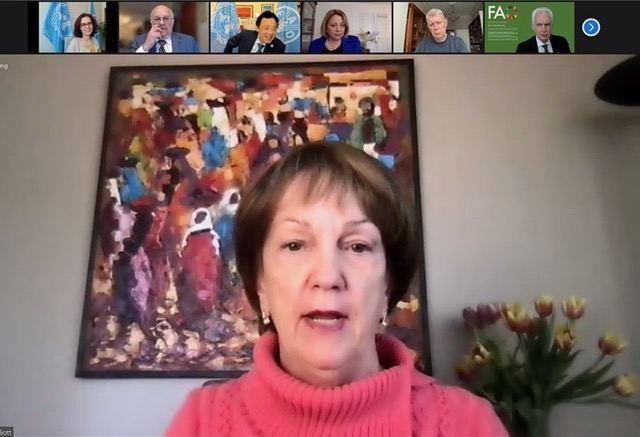





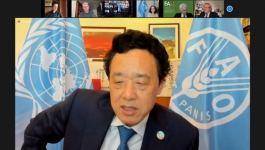






MENAFN29042022000187011040ID1104129134
Legal Disclaimer:
MENAFN provides the information “as is” without warranty of any kind. We do not accept any responsibility or liability for the accuracy, content, images, videos, licenses, completeness, legality, or reliability of the information contained in this article. If you have any complaints or copyright issues related to this article, kindly contact the provider above.